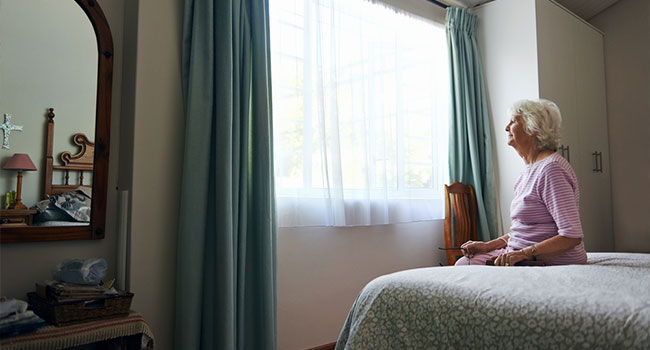
New Minnesota Law Allows Families to Install Internet-Connected Cameras In Senior Care Facilities
The new policies, meant to protect elder privacy, have also drawn criticism because of the requirement that families notify care facilities before they install the camera.
- By Haley Samsel
- Jan 17, 2020
After several years of public debate about the issue, a Minnesota law going into effect this month will allow family members to install video surveillance cameras in the rooms of elderly patients, given they meet a certain set of reporting requirements.
The new law clarifies some confusion over whether it was legal to install internet-enabled cameras in residents’ rooms at elderly care facilities, The Star Tribune reported. Remote monitoring systems have become increasingly popular for those who want another set of eyes on their older family members, may fall or need medical attention in the middle of the night when fewer caregivers are on hand.
Now, families can install the cameras if they obtain the elderly resident’s consent and notify the facility of their plans. If the patient has a roommate, they must also consent to the installation beforehand. And in the case that senior residents are cognitively impaired and cannot give consent, their family members must submit a form with a written statement from a medical professional confirming the patient’s condition.
“Once you install one of these cameras, you can’t imagine living without it,” Richard Breitman, an attorney who is using a camera to monitor his mother’s care, told the Star Tribune. “It gives you peace of mind knowing that another set of eyes is on our mother.”
The regulations have not come without controversy, particularly over the privacy rights of elderly people and the possibility that the reporting requirements could have a “chilling effect” on families seeking to install cameras.
On the one hand, families may find the additional paperwork burdensome and decide against installing a camera just to avoid the headache. But the state had to find a way to protect seniors’ privacy rights and ensure that patients know they are being filmed, according to Sean Burke of the Minnesota Elder Justice Center.
At the same time, the law also makes it a violation of state law to install a camera without first notifying a facility. If a family is concerned that their relative is a victim of elder abuse at a care facility, they might not want to notify staff that they are now monitoring their treatment of a patient.
The law does include an exception to the rule that addresses this concern: If a family member fears retaliation for installing the camera, they can install it for two weeks without notifying the facility if they fill out a form and submit it to the Office of the Ombudsman of Long-Term Care.
However, some advocates still believe that the new law is “unnecessarily punitive” and makes it easier for facilities to retaliate against families who seek to monitor the care of the patient.
“All people want to do is monitor the care of their loved ones, to make sure they are getting what they are paying for,” said Jean Peters, the president of Elder Voice Family Advocates. “These reporting requirements will have a chilling effect on families.”
Many elderly Minnesotans and their families are also just now learning about the technology, which means they will also need to be educated about the regulations surrounding internet-connected cameras in care facilities. Advocates say they are trying to get educational materials about the law into welcome packets for new patients.
About the Author
Haley Samsel is an Associate Content Editor for the Infrastructure Solutions Group at 1105 Media.